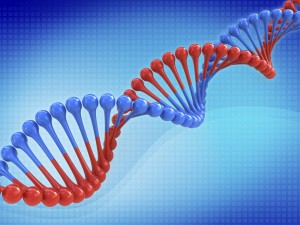Wis. Republican praises DNA court decision
By: KIMBERLY ATKINS, BridgeTower Media Newswires//June 3, 2013//
Wis. Republican praises DNA court decision
By: KIMBERLY ATKINS, BridgeTower Media Newswires//June 3, 2013//
 Likening the practice to fingerprinting, the U.S. Supreme Court has upheld a Maryland law authorizing the warrantless collection of DNA samples from suspects accused of certain serious crimes.
Likening the practice to fingerprinting, the U.S. Supreme Court has upheld a Maryland law authorizing the warrantless collection of DNA samples from suspects accused of certain serious crimes.
The 5-4 ruling in Maryland v. King will effect various laws in more than two dozen other states and the federal government allowing pre-conviction collection of DNA — including Arizona, Louisiana, Michigan, Minnesota, Missouri, the Carolinas and Virginia.
Writing for the majority, Justice Anthony Kennedy noted that the collection of DNA material via a cheek swab was indisputably a search under the Fourth Amendment. But the government’s substantial interest in using DNA evidence to identify arrestees and connect them to other crimes outweighs suspects’ privacy interests given the nonintrusive nature of the search, Kennedy wrote.
“In this respect the only difference between DNA analysis and the accepted use of fingerprint databases is the unparalleled accuracy DNA provides,” Kennedy wrote. Given other extensively intrusive search procedures arrestees are subject to, Kennedy wrote, a “a [cheek] swab of this nature does not increase the indignity already attendant to normal incidents of arrest.”
In a stinging dissent, Justice Antonin Scalia said the ruling went against the basic principles of Fourth Amendment jurisprudence. Not only does DNA data collection not serve the purpose of identification due to the time it takes to process the information, but the lack of limitations on the majority’s opinion is cause for concern, Scalia asserted.
“The court disguises the vast (and scary) scope of its holding by promising a limitation it cannot deliver. The court repeatedly says that DNA testing, and entry into a national DNA registry, will not befall thee and me, dear reader, but only those arrested for ‘serious offense[s],’” Scalia wrote in a dissent joined by Justices Ruth Bader Ginsburg, Sonia M. Sotomayor and Elena Kagan. “I cannot imagine what principle could possibly justify this limitation, and the Court does not attempt to suggest any. If one believes that DNA will ‘identify’ someone arrested for assault, he must believe that it will ‘identify’ someone arrested for a traffic offense.”
The ruling reverses a Maryland Court of Appeals ruling in favor of a man whose DNA was collected after his arrest on assault charges. His DNA was later matched with a sample from a rape kit in another case. He appealed the resulting rape conviction, and the state’s highest court held that the warrantless collection and use of the pre-conviction DNA sample was unconstitutional.
On Monday, a Wisconsin Republican on the Legislature’s finance committee said the U.S. high court’s decision should soothe concerns about the practice in Wisconsin.
Gov. Scott Walker’s executive budget calls for police to take DNA from anyone arrested for a felony. Sen. Sheila Harsdorf, of River Falls, a finance committee member who championed Walker’s plan, released a statement calling the ruling a victory for crime victims. She said Wisconsin should move forward with confidence.
The Associated Press also contributed to this report.
Legal News
- Waukesha man sentenced to 30 years for Sex Trafficking
- 12-year-old shot in Milwaukee Wednesday with ‘serious injuries’
- Milwaukee man convicted of laundering proceeds of business email compromise fraud schemes
- Giuliani, Meadows among 18 indicted in Arizona fake electors case
- Some State Bar diversity participants walk away from program
- Wisconsin court issues arrest warrant ‘in error’ for Minocqua Brewing owner
- Iranian nationals charged cyber campaign targeting U.S. Companies
- Facing mostly white juries, are Milwaukee County defendants of color truly judged by their peers?
- Milwaukee Mayor speaks in D.C. Tuesday at White House water summit
- Chicago man sentenced to prison after being caught with ‘Trump Gun’
- FTC bans non-competes
- Gov. Evers seeks applicants for Dane County Circuit Court
WLJ People
- Power 30 Personal Injury Attorneys – Russell Nicolet
- Power 30 Personal Injury Attorneys – Benjamin Nicolet
- Power 30 Personal Injury Attorneys – Dustin T. Woehl
- Power 30 Personal Injury Attorneys – Katherine Metzger
- Power 30 Personal Injury Attorneys – Joseph Ryan
- Power 30 Personal Injury Attorneys – James M. Ryan
- Power 30 Personal Injury Attorneys – Dana Wachs
- Power 30 Personal Injury Attorneys – Mark L. Thomsen
- Power 30 Personal Injury Attorneys – Matthew Lein
- Power 30 Personal Injury Attorneys – Jeffrey A. Pitman
- Power 30 Personal Injury Attorneys – William Pemberton
- Power 30 Personal Injury Attorneys – Howard S. Sicula











